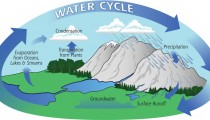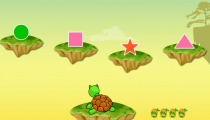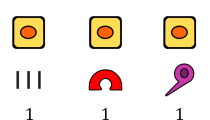As a new school year begins, teachers and parents…

The 10 Most Important Science Facts That Every Student Should Know Before Leaving Elementary School
At TurtleDiary.com, we were recently challenged by fellow educators to come up with the ten most important science facts we felt every child should know before graduating from elementary school.
Honestly, we couldn’t come up with the ten most important. There are so many things kids should know about science early on, before they enter junior and senior high. They need to know about the earth, the environment, space, animals, chemistry, and more.
An example of a fun, scientific fact: did you know that a cricket’s ears are located on its front legs?
Is that important? We’re not sure. And the other thing you need to know about scientific facts is that our scientific knowledge grows and changes, and what we think we know today could be totally disproven tomorrow.
What Should Children Learn?
We believe that children should have a solid grounding in science before they leave the elementary grades. This should include the basics of chemistry, human physiology, the water table, different types of animals, (mammals, amphibians, reptiles, insects and microbes), and the environment (climate change, reproduction, the food chain, and more).
But really, who is to say what a child should learn about science, beyond developing a love for learning and a desire to learn more? In the early grades, most children are exposed to science worksheets for kids. There are pre-k worksheet and others right on up to 4th grade science worksheets, and they’re all valuable when it comes to teaching kids about science. The main thing, though, is that kids enjoy learning about science, and that’s best delivered through facts that they can enjoy and share with their friends. These may not be the most useful facts, but they sure are interesting!
- In the human body, there are an amazing 62,000 miles of blood vessels. If you laid them end to end, they’d circle the earth 2.5 times.
- Every 9,300 years, a human being is struck by a meteorite.
- The Great Barrier Reef is over 2,000 km long and is the biggest living structure on the planet.
- An 8,000 megaton bomb is only as strong as the average hurricane.
- Human technology has devised a laser light that is a million times brighter than the sun.
- Polar bears can run over 25 mph, and jump 6 feet in the air.
- The fur of polar bears is transparent, and can’t be detected by infrared cameras.
- Humans and dolphins have a common ancestor.
- Every single human being accidentally eats 430 bugs in any given year.
- The temperature on Mercury’s surface is more than 430C during the day.
With these interesting facts, our hope is that your kids will have a thirst for knowledge and will long to know much more than what we’ve offered here. There are all sorts of sources for knowledge and information online and many sites will offer free science worksheets for kids so that they can explore and find out more about what interests them. At TurtleDiary.com, you’ll find tons of different free science worksheets for kids, as well as games and activities that they can play to learn more about the wonderful world of science.
Facilitate Learning
You can also help your child learn more about science by visiting museums, going on nature walks, and attending events in your community. A love of science should be encouraged so take every opportunity to explore the natural world with your child. When your child’s eyes open up to the wonders of science, you just might find that yours do as well – and this will be something that you can enjoy with your child.
Learning Aids
You’ll find a wealth of learning aids online to help your child learn more about science. Your child will learn everything he or she needs to know about basic scientific facts at every grade level. We offer worksheets that are fun to perform, and do over and over to reinforce basic scientific concepts at all grade levels from kindergarten on up to 4th grade.



